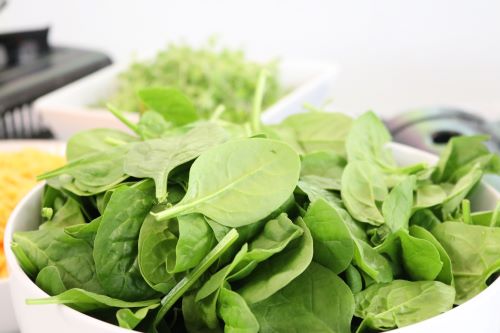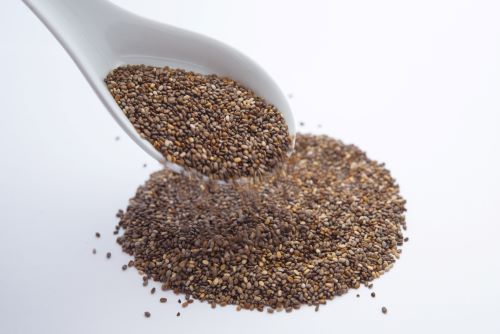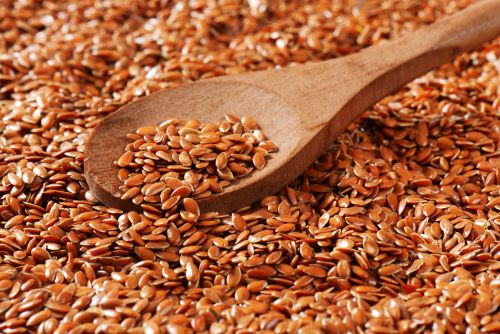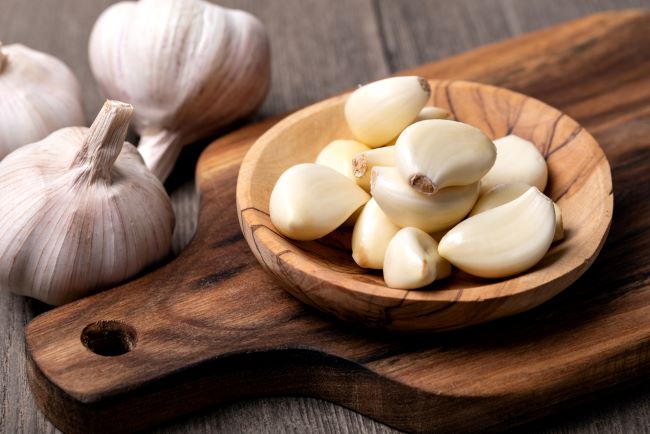7 Days Diabetic Diet Plan: A Nutritional Guide for Managing Diabetes!
Last updated on : 26 Nov, 2024
Read time : 20 min
Diabetes is a long-lasting condition affecting millions worldwide. It is a complicated disease that requires a great deal of attention and care. One of the most productive ways to manage diabetes is through a healthy and balanced diet. A diabetes food chart is crucial in managing blood sugar, reducing the risk of complications and improving overall health.
For people living with diabetes, it is essential to understand food’s impact on their health. A diabetic diet chart is a blueprint that identifies the types and amounts of food people with diabetes should eat. It is designed to help people make informed choices about their diet, control their blood sugar levels, and manage their weight effectively.
This ultimate guide to diabetic diet chart will give you everything you need to know about creating a healthy, balanced eating plan. An Indian diet chart for diabetic patients offers tailored nutritional recommendations to help maintain blood sugar levels. We will also discuss a sugar patient diet chart’s essential components that benefit you.

Breakfast (Approximately 300-350 calories):
- One small bowl of oatmeal with low-fat milk and topped with fresh berries
- One boiled egg
- One slice of whole wheat toast with a thin spread of peanut butter
Lunch (Approximately 400-450 calories):
- Baked chicken with a side of steamed vegetables such as broccoli, carrots, and bell peppers
- Half a cup of brown rice
- Mixed green salad with a light preferable dressing
Evening snack (Approximately 150-200 calories):
- One small plain Greek yoghurt
- One tablespoon of chia seeds
Dinner (Approximately 400-450 calories):
- Baked salmon with lemon
- Roasted Brussels sprouts and sweet potatoes
- Half cup of quinoa
Diabetic Diet Plan – Best Food for Diabetic Patients
Individuals diagnosed with diabetes must maintain a particular dietary regimen to effectively regulate their blood sugar levels. Adhering to a diabetic diet plan is crucial not only for managing diabetes but also for improving overall health.
Incorporating foods that can help prevent complications associated with diabetes, such as heart and kidney diseases, can be highly advantageous. Here are some of the best food choices for diabetic patients:
1. Green Leafy Vegetables

Research studies have indicated that consuming green leafy vegetables can significantly benefit individuals with diabetes. These vegetables are rich in antioxidants and enzymes that can help in starch digestion.
Including green leafy vegetables such as spinach in one’s diet is an excellent way to obtain essential nutrients while keeping calorie intake at bay. Magnesium, which is abundant in spinach, has been associated with a lessened risk of developing type 2 diabetes.
Furthermore, darker vegetables like collard greens and kale are packed with vitamins A, C, E, calcium, and iron, which can maintain a healthy diet and prevent chronic diseases.
Nutritional value of green leafy vegetables
| Nutrient | Amount | Unit |
| Energy | 23 | Kcal |
| Protein | 2.9 | g |
| Carbohydrates | 3.6 | g |
| Sugar | 0.4 | g |
| Fibre | 2.2 | g |
| Fat | 0.4 | g |
| water | 91 | % |
2. Antioxidant- Cinnamon

Antioxidants in cinnamon play a crucial role in minimising oxidative stress, a form of cellular damage induced by harmful free radicals.
As per a research study, a regular intake of one gram of cinnamon extract daily for 12 weeks improved oxidative stress markers and reduced fasting blood sugar in type 2 diabetes.
The above finding holds immense importance as oxidative stress has been linked with the onset and progression of many long-lasting diseases, including type 2 diabetes.
Nutritional value of cinnamon
| Nutrient | Amount | Unit |
| Energy | 247 | Kcal |
| Protein | 4 | g |
| Carbohydrates | 81 | g |
| Sugar | 2.2 | g |
| Fibre | 1.2 | g |
| Potassium | 431 | mg |
| Sodium | 10 | mg |
3. DHA Rich – Fatty Fish

Eating fish can offer multiple health benefits for individuals with diabetes. The protein in fish is a valuable energy source for the body, while omega-3 fatty acids can help improve heart health.
Various studies have suggested that consuming fish may decrease the risk of type 2 diabetes. Given that many people with diabetes tend to have lower levels of vitamin D, incorporating fish into a sugar patient diet chart can be a practical way to promote the intake of this essential nutrient.
Nutritional value of fatty fish
| Nutrient | Amount | Unit |
| Energy | 280 | Kcal |
| Protein | 39.2 | g |
| Carbohydrates | 0 | g |
| Sugar | 0 | g |
| Fibre | 0 | g |
| Fat | 12.5 | g |
| Sodium | 86 | mg |
4. Dietary Fiber: Chia Seeds

The consumption of chia seeds has been observed to provide a commendable amount of dietary fibre linked to beneficial effects on insulin resistance and blood glucose levels in various studies. It can decrease the likelihood of developing metabolic syndrome and type 2 diabetes.
Additionally, research has found that bread that includes chia seeds results in lower blood sugar levels than regular bread, making it an ideal option for those looking to maintain blood sugar levels.
Nutritional value of chia seeds
| Nutrient | Amount | Unit |
| Energy | 138 | Kcal |
| Protein | 4.7 | g |
| Carbohydrates | 12 | g |
| Sugar | 0 | g |
| Fibre | 9.8 | g |
| Fat | 8.7 | g |
| Sodium | 5 | mg |
5. High Protein- Greek Yoghurt

Greek yoghurt is particularly beneficial for individuals with diabetes. It is mainly due to its low carbohydrate content, meaning it can be consumed without causing a significant spike in blood sugar levels. Additionally, Greek yoghurt is high in protein, providing essential nutrients that can regulate blood sugar levels and keep you feeling full for extended periods.
One of the most significant benefits of Greek yoghurt is its probiotic content, which can help to improve gut health and powers the immune system.
Nutritional value of Greek yoghurt
| Nutrient | Amount | Unit |
| Energy | 92 | Kcal |
| Protein | 16.1 | g |
| Carbohydrates | 5.68 | g |
| Sugar | 5.1 | g |
| Fat | 0.265 | g |
| Sodium | 56.2 | mg |
| Potassium | 220 | mg |
6. Flaxseed Lignans

Flaxseeds and flaxseed oil are packed with nutrients that can do wonders for our health. Studies have shown that these mighty little seeds can offer many benefits, particularly for people with diabetes.
These seeds have high fibre content, omega-3 fatty acids, and unique plant compounds. Flax seeds and flaxseed oil may help improve blood sugar, enhance insulin sensitivity, and lower the risk of heart disease.
Nutritional value of flaxseeds
| Nutrient | Amount | Unit |
| Energy | 55 | Kcal |
| Protein | 1.9 | g |
| Carbohydrates | 3 | g |
| Sugar | 0.2 | g |
| Fat | 4.3 | g |
| Sodium | 3.1 | mg |
| Fibre | 2.8 | g |
7. Fiber- Rich Nuts

Including nuts in your diet can offer many advantages for those with diabetes. Researchers have deduced that nuts may even have the potential to lower the likelihood of developing type 2 diabetes.
The Journal of the American College of Nutrition has released a study claiming that ‘incorporating nuts into sugar patient diet chart was linked to a decline in certain risk factors associated with cardiovascular disease, type 2 diabetes (T2DM), and metabolic syndrome.’
Nutritional value of nuts
| Nutrient | Amount | Unit |
| Energy | 607 | Kcal |
| Protein | 20 | g |
| Carbohydrates | 21 | g |
| Sugar | 4.2 | g |
| Fat | 54 | g |
| Sodium | 273 | mg |
| Potassium | 632 | mg |
8. Fermented Apple Juice- Apple Cider Vinegar

Apple cider vinegar has gained attention as a potential aid for diabetic patients due to its benefits in managing blood sugar levels. It’s believed that the acetic acid in apple cider vinegar helps improve insulin sensitivity and lower post-meal glucose spikes. Incorporating a small amount of apple cider vinegar into the diet, such as in salad dressings or water, could contribute to more stable blood sugar levels.
Nutritional value of apple cider vinegar
| Nutrient | Amount | Unit |
| Cholesterol | 0 | mg |
| Sodium | 5 | mg |
| Potassium | 73 | mg |
| Total Carbohydrate | 0.9 | g |
| Sugar | 0.4 | g |
| Dietary fibre | 0 | g |
9. Raw Garlic for Anti-Obesity Effects

Eating garlic can minimise the chance of heart ailments, a common condition that affects almost 80% of individuals with diabetes. An analysis conducted in 2006 revealed that consuming raw garlic could lead to decreased levels of blood sugar, which in turn may lower the likelihood of developing atherosclerosis.
Nutritional value of raw garlic
| Nutrient | Amount | Unit |
| Energy | 13.41 | Kcal |
| Protein | 0.57 | g |
| Carbohydrates | 2.98 | g |
| Sugar | 0.09 | g |
| Fibre | 0.19 | g |
| Calcium | 0.15 | mg |
| Potassium | 36.09 | mg |
| Phosphorus | 13.77 | mg |
10. Anthocyanin- Rich Strawberries

Individuals who have diabetes tend to prioritise their food choices based on the glycemic load (sugar content), opting for low-glycemic fruits as opposed to those that cause a rapid increase in glucose levels.
Strawberries are an ideal example of such fruits, as their consumption doesn’t lead to a sudden surge in blood sugar levels. Knowing the glycemic load of different foods can be advantageous in managing diabetes.
Nutritional value of strawberries
| Nutrient | Amount | Unit |
| Energy | 49 | Kcal |
| Protein | 1 | g |
| Carbohydrates | 11.7 | g |
| Sugar | 7.4 | g |
| Fat | 0.5 | g |
| Sodium | 1.5 | mg |
| Fibre | 3 | mg |
| Potassium | 233 | mg |
Diabetic Diet Chart: A Nutritional Guide for Managing Diabetes
Take a look at this weekly diet chart designed for individuals with diabetes. Please note that this is simply a reference, and it’s crucial to seek advice from a certified dietitian or healthcare provider to tailor the plan according to your unique requirements and tastes.
Vegetarian Meal Plan
| Day | Breakfast | Lunch | Evening Snack | Dinner |
| Monday | Moong dal cheela with mint chutney | Tofu or paneer with roasted vegetables and quinoa | Almonds or a small apple | Whole wheat roti, bhindi masala, and a bowl of cucumber raita |
| Tuesday | Oatmeal with sliced almonds and blueberries | Tofu or paneer lettuce wraps with tomato | Sugar-free yoghurt or a handful of walnuts | Chickpea and vegetable stir-fry with quinoa |
| Wednesday | Vegetable upma | Bajra roti with palak paneer and cucumber raita | Handful of walnuts | Whole wheat roti, aloo gobi, and a bowl of spinach soup |
| Thursday | Whole-grain cereal with low-fat milk and sliced strawberries | Brown rice, dal, and mixed vegetable sabzi and vegetable raita | Small bowl of pomegranate seeds | Baked eggplant with zucchini noodles and tomato sauce |
| Friday | Oats idli with sambar | Quinoa khichdi with raita | Almonds or a small apple | Quinoa and bean salad with diced bell peppers and lime dressing |
| Saturday | Whole-grain pancakes with sugar-free syrup and sliced bananas | Quinoa and bean salad with diced bell peppers and lime dressing | Small bowl of plain yogurt with a sprinkle of flaxseeds | Vegetable dalia with a side of curd |
| Sunday | Methi paratha with low-fat curd | Brown rice, rajma, salad and cucumber raita | Small bowl of fresh papaya | Whole wheat roti, paneer tikka, and a bowl of vegetable soup |
Non-Vegetarian Meal Plan
| Day | Breakfast | Lunch | Evening Snack | Dinner |
| Monday | Scrambled egg whites with spinach, mushrooms, or whole-grain toast | Grilled chicken with roasted vegetables and quinoa | Almonds or a small apple | Whole wheat roti, grilled fish curry, and a side of steamed spinach |
| Tuesday | Oatmeal with sliced almonds and blueberries | Grilled chicken salad with mixed greens, cherry tomatoes, cucumbers, and a lemon-yogurt dressing | Sugar-free yoghurt or a handful of walnuts | Whole wheat roti, mutton stew with vegetables, and a side of green salad |
| Wednesday | Vegetable omelette with whole-grain toast | Brown rice, chicken curry (prepared with less oil), and a side of cucumber raita | Handful of walnuts | Whole wheat roti, mutton curry with a side of mixed green salad |
| Thursday | Moong dal chilla with a side of plain yogurt | Quinoa pulao with mixed vegetables and grilled chicken strips | Small bowl of pomegranate seeds | Whole wheat roti, egg curry, and a bowl of vegetable raita |
| Friday | Veggie and cheese omelette with whole-grain toast | Bajra roti (millet flatbread), grilled fish tikka, and a bowl of curd | Almonds or a small apple | Whole wheat roti, prawn/chicken curry, and a side of mixed vegetable sabzi |
| Saturday | Vegetable upma with boiled egg and a side of coconut chutney | Quinoa and bean salad with diced bell peppers and lime dressing | Small bowl of plain yogurt with a sprinkle of flaxseeds | Whole wheat roti, fish curry with a side of steamed broccoli |
| Sunday | Spinach and cheese omelette with whole-grain toast | Rajma (kidney beans) with brown rice and a side of grilled chicken salad | Small bowl of fresh papaya | Whole wheat roti, chicken saagwala (chicken with spinach), and a side salad |
Also read: coconut water for diabetic patient
Diet Chart Precautions for Sugar Patients
When following a diet chart for diabetic patients, it’s crucial to follow certain precautions to maintain sustained blood sugar levels. Here is the list of precautions you should take
- Portion Control: Portion control is a must for diabetics. Overeating, even wholesome foods, can result in spikes in blood sugar ranges. Ensure meals are balanced with appropriate portions of carbohydrates, proteins, and fats to maintain balanced glucose levels.
- Avoid Refined Sugars: Refined sugars and carbohydrates, such as white bread, pastries, and sugary syrups, should be prevented as they cause a spike in blood glucose. Opt for entire grains like brown rice, oats, and quinoa, that have a lower glycaemic index and provide a steadier energy release.
- Incorporate fiber-rich Foods: Fibre-rich foods, inclusive of vegetables, lentils, and whole grains, are essential in a diabetic weight loss plan. Fibre slows down glucose absorption, preventing instant spikes. Choose low-sugar fruits like berries, guava, or apples, and avoid high-sugar fruits like bananas or mangoes.
- Stay Hydrated: Adequate hydration is crucial. Drink lots of water all through the day and keep away from sugary drinks and excessive caffeine, which could negatively affect blood sugar levels.
- Monitor Blood Sugar: Regular monitoring of blood sugar ranges is essential to apprehend how your diet affects your blood glucose. Adjust your weight loss plan as a result and discuss with a doctor or dietitian before making any adjustments.
What are Some Effective Weight Loss Tips for Individuals With Diabetes?
If you have diabetes and are trying to shed weight, these practical suggestions may greatly help you.
- Set realistic goals: Regarding losing weight, it’s essential to set achievable and realistic goals for your situation. For this, seeking guidance from a healthcare professional or registered dietitian is advisable, as they can assist you in identifying a healthy goal for weight loss.
- Follow a balanced meal plan: Include a wholesome and nourishing diet regime that regulates your food intake and includes a diverse range of fruits, veggies, whole grains, lean meats, and beneficial fats.
- Monitor carbohydrate intake: It’s essential to keep note of your carbohydrate consumption and opt for complex carbohydrates with a low glycemic index, like grains, legumes, and non-starchy vegetables. For optimal blood sugar regulation, be sure to spread out your carb intake evenly throughout the day.
- Control portion sizes: Maintain a healthy diet by monitoring your food portions, opting for smaller dishes, and looking out for your body’s hunger signals. These practical techniques can help regulate your daily calorie intake and sustain consistent blood sugar levels.
- Do regular physical activity: Regular exercise is crucial for shedding unwanted pounds, boosting your body’s insulin response, and ultimately leading to better physical well-being. For maximum benefits, it’s best to incorporate a combination of cardio workouts like cycling or brisk walking and strength training exercises.
- Manage stress: Handling stress is crucial since it can impact your eating patterns and glucose levels. Try relaxation techniques, like taking deep breaths, meditating, or pursuing hobbies that please you.
- Get adequate sleep: Ensuring sufficient sleep each night is crucial for maintaining balanced hormone levels and minimising cravings. Make it a personal goal to achieve around 7-8 hours of restful sleep every night.
Also read: Ayurvedic Diet For Weight Loss
What are the Do’s and Don’ts of a Diabetic Diet Plan?
To effectively regulate blood sugar levels while following a diabetic diet, it’s crucial to remember the essential do’s and don’ts. Referring to a normal blood sugar level chart can also be helpful in managing these levels.
Do’s
- Eat a well-balanced diet
- Stay hydrated
- Do exercises regularly
Don’ts
- Avoid sugary beverages
- Limit processed and refined foods
- Reduce salt intake
- Avoid skipping meals
Conclusion
A diabetic diet chart is a powerful tool in managing diabetes and improving overall health. By understanding the role of nutrition in diabetes management, people living with diabetes can make informed choices about what to eat and how it affects their blood sugar levels.
A healthy, balanced eating plan can reduce the risk of complications, improve weight management, and enhance overall well-being. Creating a diabetic diet chart may seem overwhelming initially, but with the correct information and support, it can become a manageable and practical part of diabetes management.
You can download our user-friendly Truemeds app to access medicines at low rates easily. Submit your prescription to our platform to receive branded and generic medications. Enjoy savings on purchases and the added convenience of free home delivery on relevant orders across India*.
Frequently Asked Questions
The five best foods for diabetics include green leafy vegetables, raw garlic, fish, yoghurt and nuts.
Working closely with a doctor is vital to reduce blood sugar levels quickly and effectively. They can provide personalised guidance based on individual circumstances.
Following a diabetes diet is essential for several reasons, like it helps regulate blood sugar levels and prevent spikes and crashes, reducing the risk of high and low blood sugar levels.
Calorie counting in diabetes management involves monitoring and controlling the number of calories consumed to achieve and maintain a healthy weight.
The recommended daily carb intake for individuals with diabetes may vary depending on age, sex, physical activity level, and medication regimen. Generally, a moderate carbohydrate intake of 45-60 grams per meal is a standard guideline. Still, it’s best to work with a registered dietitian or healthcare provider to determine an individualised carb intake plan.
The recommended daily water intake for diabetics is similar to that of the general population. It is typically around 2 litres of water daily. However, individual fluid needs may vary based on age, activity level, climate, and overall health.
Low glycemic index (GI) fruits such as berries, apples, citrus fruits, and melons are generally good choices. Fruits can benefit diabetes management by providing essential vitamins, minerals, and fibre.
Individuals with diabetes can consume carbohydrates, but focusing on healthy carbohydrate choices and controlling portion sizes is essential. Complex carbohydrates from whole grains, legumes, and non-starchy vegetables are preferred over simple carbohydrates in sugary foods and refined grains.
Alcohol consumption can affect sugar levels in individuals with diabetes. Alcohol is metabolised differently in the body and can cause blood sugar to change, depending on various factors such as the type of alcohol consumed, quantity, and presence of other medications.
Physical activity plays a critical role in managing diabetes alongside a diet chart. Regular exercise helps improve insulin sensitivity, allowing the body to utilise insulin more effectively. It helps lower blood sugar levels, promotes weight management, reduces insulin resistance, and improves cardiovascular health.
Creating a balanced meal plan with a diabetes diet chart involves incorporating various nutrient-dense foods. It’s essential to focus on portion control, choose foods with a low glycemic index, and include a combination of carbohydrates, lean proteins, healthy fats, and fibre-rich foods.
While it is not necessary to count calories daily, being mindful of calorie intake can be helpful for weight management and overall glycemic control. Monitoring portion sizes, understanding the energy content of different foods, and balancing calorie intake with energy expenditure can support achieving and maintaining a healthy weight.
A diabetes diet chart can have a positive impact on insulin sensitivity. By promoting a balanced intake of carbohydrates, proteins, and fats, while emphasising whole foods and limiting added sugars and processed foods, a diabetes diet chart helps maintain stable blood sugar levels.
Diabetics must eat every 3-4 hours, which helps maintain stable blood sugar levels. Each meal should include a mix of protein, healthy fats, and complex carbohydrates.
Diabetics must eat every 3-4 hours, which helps maintain stable blood sugar levels. Each meal should include a mix of protein, healthy fats, and complex carbohydrates.
Follow a 7 days diet plan for diabetics, as elaborated above. Your meals should include foods with a low glycemic index, plenty of fibre, lean protein, and healthy fats while avoiding sugary foods and refined carbs. Exercise regularly to improve insulin sensitivity. Monitor your blood sugar levels frequently and stay hydrated.
Yes, rice can be included, but it’s best to opt for brown or basmati rice in controlled portions due to their lower glycaemic index compared to white rice.
Diabetics can eat non-starchy vegetables like spinach, broccoli, and cauliflower freely, as they are low in carbohydrates and calories. Additionally, they can enjoy lean proteins and healthy fats in moderation.
Disclaimer
The content provided within this article has been thoroughly verified for accuracy. However, we advise consulting a doctor before utilising any medication or dietary supplements mentioned herein.
References
- Ansary J, Forbes-Hernández TY, Gil E, Cianciosi D, Zhang J, Elexpuru-Zabaleta M, et al. Potential health benefit of garlic based on Human Intervention Studies: A brief overview [Internet]. U.S. National Library of Medicine; 2020 [cited 2023 Jun 20]. Available from: https://www.ncbi.nlm.nih.gov/pmc/articles/PMC7402177/
- Hou Y-Y, Ojo O, Wang L-L, Wang Q, Jiang Q, Shao X-Y, et al. A randomised controlled trial to compare the effect of peanuts and almonds on the cardio-metabolic and inflammatory parameters in patients with type 2 diabetes mellitus [Internet]. U.S. National Library of Medicine; 2018 [cited 2023 Jun 20]. Available from: https://www.ncbi.nlm.nih.gov/pmc/articles/PMC6267433/
- Gheflati A; Bashiri R; Ghadiri-Anari A; Reza JZ; Kord MT; Nadjarzadeh A; The effect of apple vinegar consumption on glycemic indices, blood pressure, oxidative stress, and homocysteine in patients with type 2 diabetes and dyslipidemia: A randomised controlled clinical trial [Internet]. U.S. National Library of Medicine; [cited 2023 Jun 20]. Available from: https://pubmed.ncbi.nlm.nih.gov/31451249/
- Villarreal-Renteria AI, Herrera-Echauri DD, Rodríguez-Rocha NP, Zuñiga LY, Muñoz-Valle JF, García-Arellano S, Bernal-Orozco MF, Macedo-Ojeda G. Effect of flaxseed (Linum usitatissimum) supplementation on glycemic control and insulin resistance in prediabetes and type 2 diabetes: A systematic review and meta-analysis of randomised controlled trials. Complementary Therapies in Medicine. 2022 Jul 14:102852; [cited 2023 Jun 20]. Available from: https://www.sciencedirect.com/science/article/pii/S0965229922000541
- Eales J, Lenoir-Wijnkoop I, King S, Wood H, Kok FJ, Shamir R, Prentice A, Edwards M, Glanville J, Atkinson RL. Is consuming yoghurt associated with weight management outcomes? Results from a systematic review. International Journal of Obesity. 2016 May;40(5):731-46; [cited 2023 Jun 20]. Available from: https://www.ncbi.nlm.nih.gov/pmc/articles/PMC4856732/
- Qin B, Panickar KS, Anderson RA. Cinnamon: potential role in the prevention of insulin resistance, metabolic syndrome, and type 2 diabetes. Journal of diabetes science and technology. 2010 May;4(3):685-93; [cited 2023 Jun 20]. Available from: https://journals.sagepub.com/doi/pdf/10.1177/193229681000400324
- Georgoulis M, Kontogianni MD, Yiannakouris N. Mediterranean diet and diabetes: prevention and treatment. Nutrients. 2014 Apr 4;6(4):1406-23; [cited 2023 Jun 20]. Available from: https://www.mdpi.com/2072-6643/6/4/1406/pdf
- Al-Khalifa A, Mathew TC, Al-Zaid NS, Mathew E, Dashti HM. Therapeutic role of the low-carbohydrate ketogenic diet in diabetes. Nutrition. 2009 Nov 1;25(11-12):1177-85. [cited 2023 Jun 20]. Available from: https://www.sciencedirect.com/science/article/pii/S0899900709001774
Disclaimer
Our healthcare experts have carefully reviewed and compiled the information presented here to ensure accuracy and trustworthiness. It is important to note that this information serves as a general overview of the topic and is for informational purposes only. It is not intended to diagnose, prevent, or cure any health problem. This page does not establish a doctor-patient relationship, nor does it replace the advice or consultation of a registered medical practitioner. We recommend seeking guidance from your registered medical practitioner for any questions or concerns regarding your medical condition.
Popular Articles
Recommended Articles
Recent Articles
Top-Selling Medicines:
...View more
Top-Selling OTC:
...View more
Subscribe
Claim your complimentary health and fitness tips subscription and stay updated on our newest promotions.
Download Truemeds
Manage your health with ease Download Truemeds today!Get easy access to medicine refills, health information, and more. With our app, you'll never have to wait in line again. Download now and start taking control of your health.

Contact Us
Our customer representative team is available 7 days a week from 9 am - 9 pm.
v3.4.16
Our Payment Partners


























































